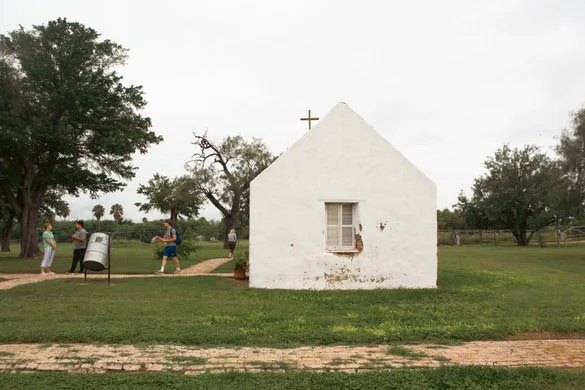What does the Bible say about welcoming the stranger?
As of June 2024, the United Nations High Commissioner for Refugees (UNHCR) reported that approximately 122.6 million people worldwide have been forcibly displaced from their homes.
65% of all refugees originate from just four countries: Syria, Venezuela, Ukraine and Afghanistan. 71% of the globally displaced population resides in low and middle-income countries, with 69% hosted in neighboring countries. Many of these individuals endure challenging living conditions, and years of liminal living before they can begin to re-establish their lives.
Immigration remains a complex and highly political issue in today's society. There are countless voices speaking into the immigration conversation. Is it possible that God has a different definition for what we have defined as “global migration,” or “the immigration crisis?” Have you considered how God is moving among the globally displaced, and how He might be calling His Church to respond?
As believers, do we give Him the final word?
In 2024, 26% of evangelical believers cited the Bible as the most important factor guiding their views on immigration (Lifeway Research, 2024). As followers of Jesus, we are called to view all things (including immigration) through the lens of scripture, leaning on God’s word to guide us rather than the political climate in which we live.
The Bible is NOT silent on this topic.
God recognizes the foreigner as particularly vulnerable to injustice, alongside the orphan and the widow.
In the Old Testament, Moses reminds the people of Israel, “For the Lord your God is God of gods and the Lord of lords, the great God, mighty and awesome, who shows no partiality and accepts no bribes. He defends the cause of the fatherless and the widow and loves the foreigner residing among you, giving them food and clothing. And you are to love those who are foreigners, for you yourselves were once foreigners in Egypt” (Deuteronomy 10:17-19).
In Matthew 25:31-46, Jesus teaches His disciples that whatever they do for “the least of these,” they have done for Him. When we love and serve the hungry, the thirsty, the naked, and the stranger, we are loving and serving Jesus.
Not serving like Jesus did, but serving Jesus Himself.
In using the phrase “the least of these,” Jesus is not suggesting that any person is less than, but rather that the society as a whole contextually considered these groups of people as “less than.” Don’t we do the same today? Why is it that we categorize people created in the image of God? Is it to relieve ourselves of responsibility? In creating man made labels, we do not invalidate God’s commands to make disciples of all nations, and to love our neighbor as ourselves.
What if the gospel was proclaimed through receiving?
Seeds of faith planted through welcome?
Other Passages About Welcoming the Stranger
Foreigners are not to be oppressed.
“Do not oppress a foreigner; you yourselves know how it feels to be foreigners because you were foreigners in Egypt” (Exodus 23:9).
WE ARE ALL STRANGERS.
THIS WORLD IS NOT OUR HOME.
OUR CITIZENSHIP IS IN HEAVEN.
“Since you call on a Father who judges each person's work impartially, live out your time as foreigners here in reverent fear” (1 Peter 1:17).
“Consequently, you are no longer foreigners and strangers, but fellow citizens with God’s people and also members of his household” (Ephesians 2:19).
God provides for the foreigner & cares for their cause.
In Deuteronomy 14:28-29 God commands His people to give an additional portion of their harvest to the Levite priests responsible for ministering to the people of Israel every three years. A portion of this additional tithe was designated specifically to care for the poor, the widow, the orphan, and the foreigner. God says, ‘'If they have enough to eat, then the Lord your God will be pleased and make you successful in everything you do.'
“I was eyes to the blind, and feet to the lame. I was a father to the needy, and I championed the cause of the stranger. I broke the fangs of the unrighteous, and made them drop their prey from their teeth” (Job 29:15-17).
“The Lord watches over the foreigner and sustains the fatherless and the widow, but He frustrates the way of the wicked.” (Psalm 146:9).
“This is what the Lord Almighty said: ‘Administer true justice; show mercy and compassion to one another. Do not oppress the widow or the fatherless, the foreigner or the poor. Do not plot evil against each other’” (Zechariah 7:9-10).
God calls us to love our neighbor, and to live out the gospel in action.
‘Love the Lord your God with all your heart and with all your soul and with all your strength and with all your mind,’ and ‘Love your neighbor as yourself’ (Luke 10:27).
Examples of Refugees in Scripture:
Hagar — Genesis 16:1-15
David — 1 Samuel 23:13-18
Jesus — Matthew 2:13-23
Aquila and Pricilla — Acts 18:1-3; Romans 16:3-5, 1 Corinthians 16:19
For more scripture passages on the theme of immigration, we invite you to participate in the Evangelical Immigration Table’s
“I Was a Stranger Challenge.”
From Genesis to Revelation, God fills the earth, brings about the birth of Jesus, and builds His Church through the movement and displacement of people. While we may not find ourselves living displaced as physical foreigners in this lifetime, God’s call to welcome the stranger remains unchanged.
As followers of Christ, we must seek to understand God’s heart for His people, which is foundational to compassionately engaging His Kingdom work. Wherever you are on your journey of understanding the topic of immigration, we invite you to enter into God’s word with an open heart and remember the people behind the headlines.
Border Perspective exists to equip, educate, and mobilize people of faith through biblical resources and service-learning experiences along the U.S. and Mexico Border.

































